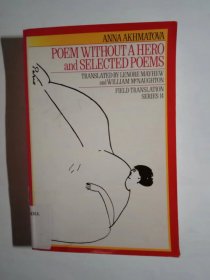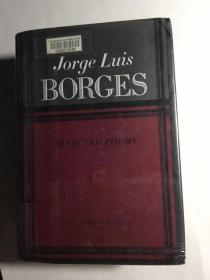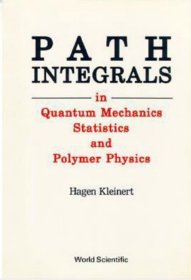
诗选 Selected Poems 1930-1988 英文原版 经典文学
¥ 116 8.4折 ¥ 138 九五品
库存2件
作者Samuel Beckett
出版社Faber and Faber
ISBN9780571243723
出版时间2009-11
印刷时间2009-11
印数1千册
装帧平装
开本32开
纸张轻型纸
页数224页
字数1千字
定价138元
上书时间2024-07-08
- 最新上架
商品详情
- 品相描述:九五品
- 商品描述
-
基本信息
Edited by:Samuel Beckett
Publisher:Faber and Faber
Published:05 Nov 2009
Language:English
Format Paperback:224 pages
ISBN10:057124372X
ISBN13:9780571243723
Weight:220 g
Dimensions:130 x 198 x 17(mm)
页面参数仅供参考,具体以实物为准
书籍简介
作为一名诗人,塞缪尔·贝克特在20世纪30年代的巴黎小评论中推出了自己,作为一名诗人,他结束了自己的职业生涯。这个新的选集,从Whoroscope(1930)到what is the word(1988),描述了一生的写作轨迹。更重要的是,作为一名诗人,贝克特在法语写作方面取得了第一次突破,《诗选》代表了两种语言的作品,包括一系列简短但精雕细刻的mirlitonnades,这极大地开创了他后期散文的风格,他的野心是“在语言上钻一个又一个洞,直到隐藏在洞后的东西——不管它是什么——开始渗透进来。”此外,贝克特还翻译了同时期的阿波利奈尔、埃拉尔、米夏克斯、蒙代尔等人的作品,这些都是贝克特自己的诗歌成就之一。
It was as a poet that Samuel Beckett launched himself in the little reviews of 1930s Paris, and as a poet that he ended his career. This new selection, from Whoroscope (1930) to 'what is the word' (1988), describes a lifetime's arc of writing. It was as a poet moreover that Beckett made his first breakthrough into writing in French, and the Selected Poems represents work in both languages, including the sequence of brief but highly crafted mirlitonnades, which did so much to usher in the style of his late prose, and come as close as anything he wrote to honouring the ambition to 'bore one hole after another in language, until what lurks behind it - be it something or nothing - begins to seep through.' Also included are several of Beckett's translations from contemporaries - Apollinaire, Eluard, Michaux, Montale - in versions which count among his own poetic achievements.
作者简介
塞缪尔·贝克特1906年出生于都柏林,毕业于三一学院。在德国旅行并在伦敦和都柏林居住了一段时间后,他于1937年定居巴黎。第二次世界大战期间,他留在法国,并积极参加法国抵抗运动。从1946年春开始,他的戏剧、小说、短篇小说、诗歌和批评大部分是用法语写的。1953年,随着《恩随从戈多》在巴黎问世,贝克特的作品开始获得广泛认可。在他后来作为法语和英语的剧作家和小说家的职业生涯中,他重新定义了散文、小说和戏剧写作的可能性。塞缪尔·贝克特1961年获得弗门托文学奖,1969年获得诺贝尔文学奖。他于1989年12月在巴黎去世。
Samuel Beckett was born in Dublin in 1906 and graduated from Trinity College. He settled in Paris in 1937, after travels in Germany and periods of residence in London and Dublin. He remained in France during the Second World War and was active in the French Resistance. From the spring of 1946 his plays, novels, short fiction, poetry and criticism were largely written in French. With the production of En attendant Godot in Paris in 1953, Beckett's work began to achieve widespread recognition. During his subsequent career as a playwright and novelist in both French and English he redefined the possibilities of prose fiction and writing for the theatre. Samuel Beckett won the Prix Formentor in 1961 and the Nobel Prize in Literature in 1969. He died in Paris in December 1989.
相关推荐
-

Devotions: The Selected Poem 英...
全新广州
¥ 110.00
-

Poem Without a Hero & Selected Poems
八五品扬州
¥ 290.00
-
![Selected Poems[诗选]](https://www0.kfzimg.com/sw/kfz-cos/kfzimg/bbdbeabe/108f2fef53850b6a_s.jpg)
Selected Poems[诗选]
七五品广州
¥ 45.00
-
![Selected Poems[诗选]](https://www0.kfzimg.com/sw/kfz-cos/kfzimg/dfcddabd/4b21db4f00ecbc3a_s.jpg)
Selected Poems[诗选]
七品上海
¥ 127.80
-

selected prose 拜伦诗选
九品周口
¥ 30.00
-

Selected Poems-诗选
全新漳州
¥ 360.00
-

博尔赫斯诗选: Selected Poems
九品扬州
¥ 388.00
-

蒙塔莱诗选: Selected Poems
八五品扬州
¥ 200.00
-

叶赛宁诗选: Selected Poetry
九品扬州
¥ 700.00
-

Selected Poems(希尔诗选)
九五品北京
¥ 119.00
— 没有更多了 —
















以下为对购买帮助不大的评价